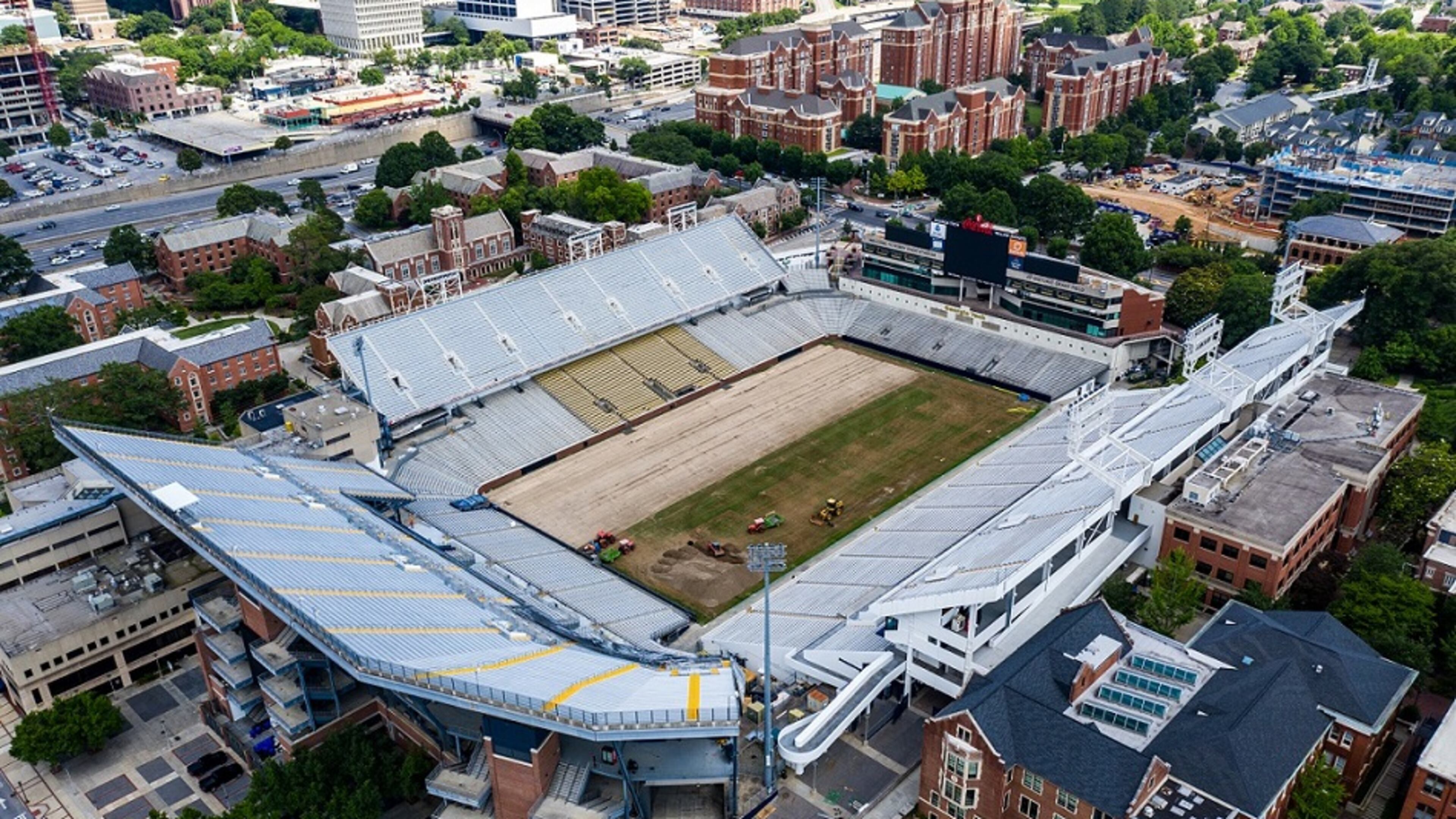Artificial turf returning to Grant Field surface at Bobby Dodd Stadium

Bobby Dodd Stadium’s field surface will be natural grass no more.
In a change for reasons both practical and financial, Georgia Tech will replace the grass field that had been the Yellow Jackets’ playing surface since 1995 and install artificial turf in its place, the athletic department announced Tuesday.
Keeping the grass playing field pristine and safe has required the care and attention of grounds crew and periodic replacement of the field. Last season, for instance, the center of the field was re-sodded in November in anticipation of three home games in a 15-day period.
The removal of the natural grass began in late May. It will be replaced by a Legion NXT turf system, manufactured by Shaw Sports Turf in Calhoun.
An artificial surface will allow coach Geoff Collins’ team to practice on it more frequently without concern of wearing the field out (which was part of the reason for the November re-sodding). It also will enable the athletic department to host more non-football events such as campus events, revenue-producing concerts and other sporting events. At the same time, maintenance costs will be significantly lower.

The athletic department’s news release included a statement from athletic director Todd Stansbury in which he said the switch will enable the stadium to “evolve into one of the Southeastern United States’ premier entertainment venues.” Particularly given the impact of the coronavirus pandemic on the department’s revenues, squeezing more money out of 55,000-seat Bobby Dodd Stadium is undoubtedly an objective.
According to the news release, the athletic department began planning to transition to artificial turf last winter after scheduling two summer concerts (BTS and Guns N’ Roses, both later postponed because of the pandemic), the latter of which would have left less than a month’s time to install a new grass field before the Sept. 3 season opener against Clemson.
According to the Shaw website, the Legion NXT field “offers realistic aesthetics with an electrifying degree of durability.” Shaw claims that the field showed minimal signs of wear after tests approximating 32 years of heavy use.
The Arizona Diamondbacks, Miami Marlins and Texas Rangers also use synthetic fields made by Shaw, as does LSU for its outdoor and indoor practice fields.
The 1995 change to grass followed 24 seasons in which the Jackets played home games on artificial turf (1971-94).


